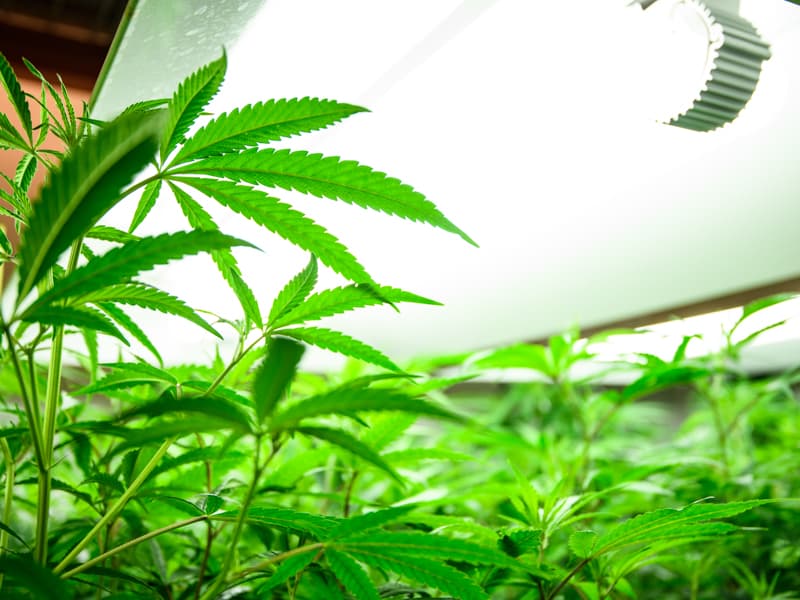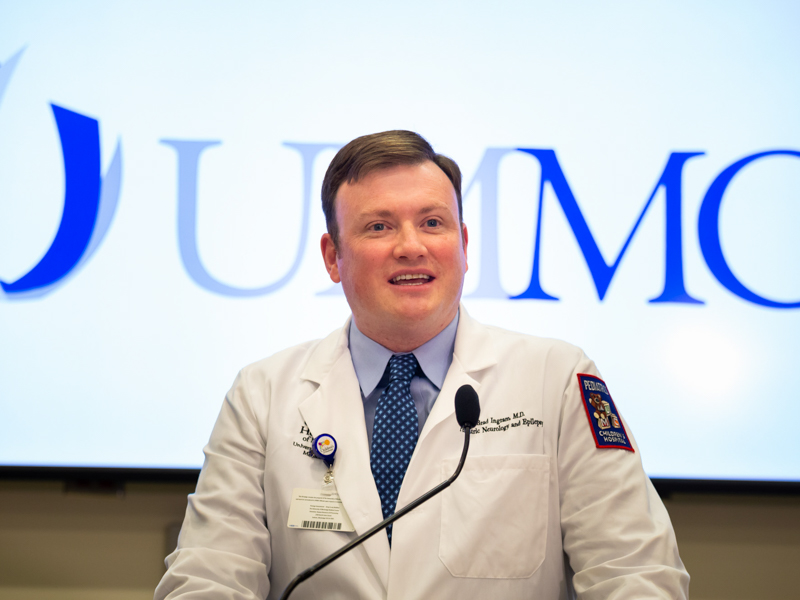Pediatric CBD drug trial at UMMC gets two-year extension

The clinical trial of a new cannabis-derived drug to treat seizures in children has moved into a study of its long-term safety and effectiveness during a two-year extension.
Approved by Food and Drug Administration, the extension will allow further study of the clinically tested investigational drug product in new trial participants as well as in children already participating.
The drug is an extract rich in cannabidiol, CBD for short, derived from cannabis grown at the University of Mississippi School of Pharmacy’s National Center for Natural Products Research. To conduct the trial, required approvals were obtained in 2018 from the Drug Enforcement Agency and the FDA.
Originally, the trial, conducted by the University of Mississippi Medical Center and the UM School of Pharmacy, was approved for 10 patients in 2018. The original six-month study received its first extension, for a year, in 2019.

Principal investigator Dr. Brad Ingram said, with the two-year extension, the trial could include an additional 25 to 50 children.
Those in the trial “are patients whose lives have been devastated by their epilepsy, even up to their abilities to walk, talk, or participate in simple activities of self-care,” Ingram said.
“The key message in this is that no significant safety issues have been found with this drug,” Ingram said. “Eight of the 10 original families in this study are still enrolled in the study, and those who are not still enrolled left because of the logistics of extra clinic visits involved.”
The patients who left the study saw their seizures increase after discontinuing use of the drug, Ingram said.
The extract, a Schedule I controlled substance, is prepared from a special type of cannabis that has a high concentration of CBD and a low concentration of THC, the psychotropic element of cannabis.
Results over the past 18 months have shown the new drug’s potential, Ingram said.
“Some of the patients were able to be weaned off of two to three other drugs during this trial,” Ingram said. “Now that we have this two-year extension, we can look at the long-term use of this drug.”
Dr. Richard Summers, UMMC associate vice chancellor for research, said the second extension the trial has received is a reflection on the results shown.

“The FDA extension allows for the continuing development of this natural product into a therapeutic with the promise of controlling seizures in many patients that have failed conventional treatment,” Summers said. “The allowance of an extension is also a reflection of the continuing great success of our initial trial and the quality of the research operations of the UMMC CBD team. This kind of objective evidence-based research will also be important as some in our medical community enter into a new era regarding the use of these kinds of agents in medical management.”
Dr. Larry Walker, director emeritus of the NCNPR, said the trial is showing the drug’s potential.
"We at the UM School of Pharmacy and National Center for Natural Products Research have been pleased to support this trial, demonstrating the feasibility of expanded clinical evaluation of CBD extract in refractory childhood epilepsy,” he said.
Walker was instrumental in planning the study and in arranging to provide the study materials to UMMC through the National Institute on Drug Abuse’s drug supply program, for which NCNPR is the sole supplier of marijuana and cannabis extract.
In the trial, extracts of a cannabis strain grown on the University of Mississippi Oxford campus are being manufactured, packaged and checked to ensure all quality control specifications are met before being transferred to the pharmacy at UMMC’s main campus in Jackson. There, the extract is diluted with pharmaceutical-grade sesame oil to achieve the proper dosage concentration.
The possibility of organizing this clinical trial came about in 2014, when the Mississippi Legislature passed a law allowing the Medical Center to dispense CBD oil for the treatment of epileptic seizures in children.


